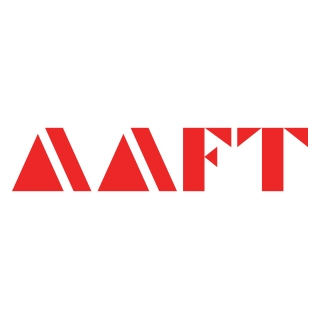Is Dietetics the Right Career for You? Skills, Passion & Purpose
Choosing the right career is more than just picking a profession – it should align not just with your skills but also with your passion and purpose. If you’re someone who genuinely cares about health, wellness, and helping others live better lives, a career in dietetics might be a perfect fit for you.
With growing awareness about the role of nutrition in preventing and managing diseases, and defining overall health, there’s a rising demand for trained professionals in this field. However, there’s a question? Is it the right fit for you? Is the career in Nutrition and Dietetics high paying?
In this article, we will talk about what a career in nutrition and dietetics looks like, the education you’ll need, the opportunities it offers, and why pursuing it could be one of the most rewarding decisions you ever make. Let’s get started:
What is Nutrition and Dietetics?
Do you want free career counseling?
Ignite Your Ambitions- Seize the Opportunity for a Free Career Counseling Session.
- 30+ Years in Education
- 250+ Faculties
- 30K+ Alumni Network
- 10th in World Ranking
- 1000+ Celebrity
- 120+ Countries Students Enrolled
In this year and era, where health is one of the most important assets, people are willing to make major changes in their lifestyle for their health. This has led to the development of a new branch in science – Nutrition and dietetics. This branch focuses on food, nutrition, and its impact on human health. It involves understanding how the nutrients in food affect the body’s health, disease prevention, and overall well-being. Professionals in this field study the physiological, biological, and behavioral aspects of eating, creating tailored nutritional plans to help individuals achieve optimal health.
Dietetics, specifically, refers to the practical application of nutrition in the management of diseases and promotion of health. A dietitian or nutritionist works with individuals, communities, or organizations to plan food and nutrition programs, supervise meal preparation, and promote healthy eating habits.
This field goes beyond just prescribing diets — it involves counseling, education, research, and sometimes even influencing food policies at a national level. It’s a career deeply rooted in science but equally dependent on empathy, communication, and a strong understanding of human behavior.
Book Now →
Why Choose a Career in Nutrition and Dietetics?
As the world becomes increasingly health-conscious, the role of nutrition and dietetics professionals has gained immense importance. Therefore, choosing a career in this field can be both professionally fulfilling and socially impactful. Here are some of the reasons why you should a career in Nutrition and Dietetics:
1. Growing Demand of Nutrition and Dietetic Professionals: According to the U.S. Bureau of Labor Statistics, employment for dietitians and nutritionists is expected to grow 7% from 2022 to 2032, faster than the average for all occupations.
Do you want free career counseling?
Ignite Your Ambitions- Seize the Opportunity for a Free Career Counseling Session.The demand for qualified nutritionists and dietitians has skyrocketed over the past few years. Rising lifestyle diseases like diabetes, hypertension, obesity, and even mental health conditions have emphasized the need for nutritional interventions. Governments, hospitals, schools, corporate offices, and wellness centers are increasingly recognizing the critical role of diet in preventive healthcare.
2. Diverse Career Opportunities: A degree in nutrition and dietetics opens a whole lot of opportunities for the candidates. Some of the important and high-paying career opportunities include:
- Clinical Settings: You get to work alongside doctors in hospitals and clinics, helping patients manage diseases through nutrition.
- Corporate Wellness Programs: You get to design employee wellness programs to promote health at workplaces.
- Media and Communication: Serve as a nutrition expert for TV shows, magazines, and digital platforms.
- Private Practice: You can set up your own consultancy to counsel clients independently.

3. Positively Impact People and Community Health: Another, and probably the most satisfying aspect of choosing Nutrition and Dietetics as a career is the aspect that you get to make a tangible impact in the lives of the people. With your profession, you can help someone manage a chronic disease through their diet, improve a child’s nutrition, or guide a community towards healthier food practices. This is not rewarding but also fulfilling. It’s a career where you can see real, measurable change resulting from your efforts.
4. Global Career Opportunities: A degree in Nutrition and dietetics can open a lot of globally relevant fields for you. Whether you want to work in India, the U.S., Australia, the U.K., or the Middle East, your skills are transferable and valued.
With the globalization of healthcare, there’s also scope for working with international organizations like WHO, FAO, and UNICEF in public health nutrition roles.
5. Inculcating Practical Skills: Beyond scientific knowledge, this field hones essential practical skills such as:
- Communication: While improving people’s health is one thing, you need to be able to explain complex nutritional concepts in simple ways.
- Problem-Solving: As a Nutrition and Dietetics professional, you must be able to design customized meal plans considering medical, cultural, and personal preferences.
- Empathy and Counseling: A dietetics professional supports their clients through their health journeys with patience and compassion.
- Research: You need to stay updated with the latest in nutritional science and apply evidence-based practices.
6. Competitive Salary: As a dietitian, you may earn a competitive salary in the field, depending on where you work. How much a dietitian can earn may depend on their education, performance and clientele. The national average salary for a dietitian is $55,304 per year. Other factors, like location, can also affect how much a dietitian earns. For example, one of the highest-paying cities in the United States for dietitians is New York City, where they can earn $63,929 per year.
What is the Education Required for Nutrition and Dietetics Professionals?
Pursuing a career in nutrition and dietetics starts with the right educational foundation. Whether you’re aiming to become a clinical nutritionist, a public health expert, or a food researcher, specialized degrees and certifications are essential. Let’s take a closer look at the courses and degrees that you can pursue to ensure a career in the field.
B.Sc. in Nutrition and Dietetics: The Bachelor of Science in Nutrition and Dietetics is typically a three-year undergraduate program. It covers topics like human physiology, biochemistry, therapeutic nutrition, community nutrition, and food service management. Many programs also include internships, giving students a chance to work in hospitals, research labs, or public health initiatives during their studies.
Eligibility: Generally requires completion of 10+2 with science subjects (Physics, Chemistry, Biology).
M.Sc. in Nutrition and Dietetics: Pursuing a Master’s degree offers specialization options such as clinical nutrition, sports nutrition, public health nutrition, or food science. This two-year course delves deeper into advanced concepts and often includes research projects or dissertations.
Eligibility: A Bachelor’s degree in nutrition, dietetics, home science, or related fields.
Diploma in Nutrition and Dietetics: For those who wish to specialize quickly, diploma and postgraduate diploma programs are available. These courses, spanning 6 months to 1 year, are focused and practical, ideal for individuals seeking to upskill or change careers.
Eligibility: Varies depending on whether it’s an undergraduate diploma or a postgraduate diploma; may require a 10+2 certificate or a bachelor’s degree.
What are the Opportunities for Nutrition and Dietetics Professionals?
The field of nutrition and dietetics offers a wide range of career opportunities across several industries. From healthcare institutions to sports organizations and even the food industry, nutrition and dietetics professionals are required, and thus, they can choose a path that matches their passion and expertise. Here are some of the best opportunities that dietetics professionals can pursue:
Clinical Nutritionist: Clinical nutritionists can work in hospitals and healthcare settings, developing diet plans tailored to patients’ medical needs. They can assist in the management of different health conditions like diabetes, heart disease, kidney disease, and gastrointestinal disorders through therapeutic diets.
Key Skills: Medical knowledge, patient counseling, menu planning, and monitoring outcomes.
Sports Nutritionist: Then comes a field that could be a dream job for sports enthusiasts – Sports nutritionists. These professionals work with athletes to optimize performance through tailored nutrition plans. They focus on meal timing, macronutrient balance, supplementation, and recovery strategies.
Key Skills: Knowledge of exercise physiology, metabolism, and dietary planning for different sports.
Public Health Nutritionist: Public health nutritionists are another career opportunity that a candidate with a nutrition and dietetics professional can pursue. They design and implement programs aimed at improving the nutritional status of entire populations. They often work with government agencies, NGOs, and international organizations to combat malnutrition and lifestyle diseases.
Key Skills: Research, policy development, community engagement, and program management.
Dietitian Consultant: if you are more interested in freelance consultant, then also you have great opportunities. Consultant dietitians can run their own practices or work as freelancers with hospitals, gyms, schools, and corporate offices. They can provide one-on-one counseling, workshops, and seminars on nutrition and wellness.
Key Skills: Entrepreneurship, communication, marketing, and customized diet planning.
Food Industry and Research: Nutritionists and dietitians can also find roles in the food industry. They can work in food labeling, product development, quality assurance, and research and development (R&D).
Key Skills: Knowledge of food technology, regulatory guidelines, and scientific research methodology.
Why Pursue a Course in Nutrition and Dietetics at AAFT?
Choosing the right institution to study nutrition and dietetics can make a significant difference in your career trajectory. The Asian Academy of Film and Television (AAFT) offers one of the most comprehensive programs designed to prepare students for the real-world demands of this dynamic profession. Choosing AAFT means preparing yourself not just for a job, but for a fulfilling career that blends science, service, and purpose.
- Industry-Oriented Curriculum: AAFT’s program combines theoretical knowledge with practical exposure. From clinical dietetics to sports nutrition, students receive hands-on training.
- State-of-the-Art Facilities: The institution boasts modern laboratories, culinary studios, and advanced fitness centers to ensure experiential learning.
- Experienced Faculty: Courses are led by seasoned nutritionists, dietitians, and healthcare professionals who bring real-world expertise into the classroom.
- Global Exposure: AAFT’s collaborations with international institutions provide students with the opportunity to learn global best practices in nutrition and dietetics.
- Focus on Research: Students are encouraged to participate in ongoing research projects, helping them stay updated with the latest developments in nutritional science.
- Career Support: AAFT offers strong placement support, internships with reputed hospitals, wellness centers, fitness chains, and the food industry.
- Holistic Development: Beyond academics, AAFT emphasizes developing communication skills, counseling techniques, and entrepreneurial abilities crucial for career growth.
Conclusion
If you have a passion for health, wellness, and a genuine desire to make a difference in people’s lives, nutrition and dietetics could be the perfect career path for you. The field offers vast opportunities, growing demand, and the chance to create a meaningful impact locally and globally. With the right education, skills, and guidance — like what you can receive at AAFT — you can carve out a successful and rewarding career in this dynamic profession.
Remember, it’s not just about helping people eat right; it’s about empowering them to live better lives.

AAFT has been providing the world with limitless creativity and expression since 1993! Through a dynamic and industry-driven curriculum, AAFT provides engaging and captivating articles to persuasive blogs and empowers its readers to explore diverse avenues of creative media education-related content.






